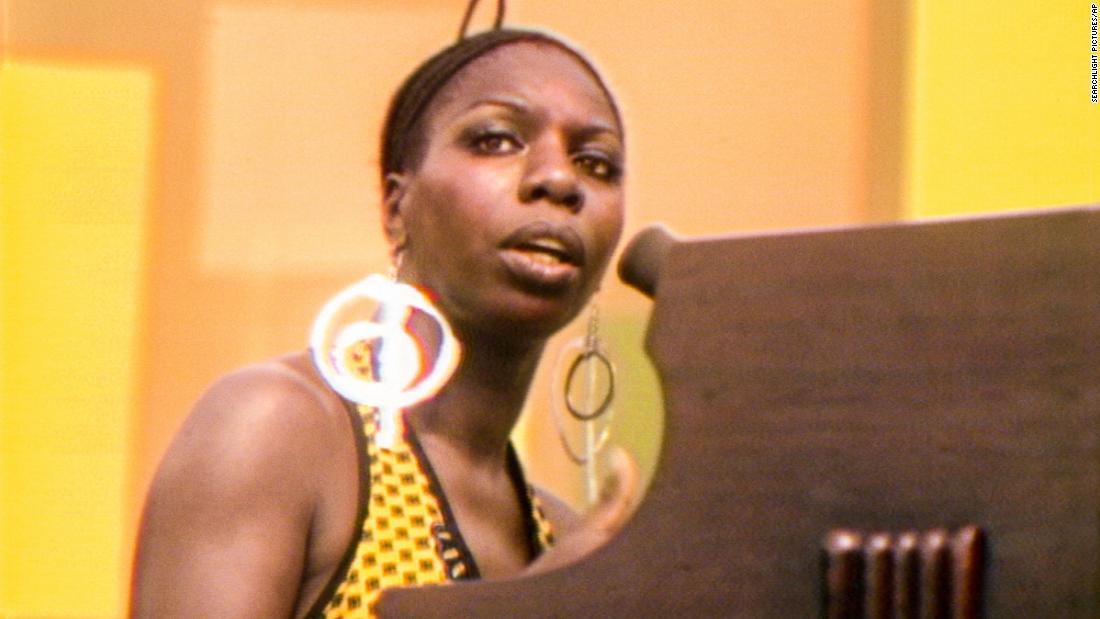Black people were more than ready — but for the rest of the country, those words from the High Priestess of Soul were the backbone of cultural expression that was powerful (and frightening) enough to be shelved for 50 years.
“Summer of Soul (…Or, When the Revolution Could Not Be Televised),” Ahmir “Questlove” Thompson’s directorial debut, is not just a music documentary, it’s a time capsule of silenced Blackness. Fifty-two years ago this summer, the Harlem Cultural Festival took place at Mount Morris Park from June 29 to August 24, 1969.
Extensive, amazing footage of this festival, a crucial part of Harlem history, lay dormant for over 50 years. Why? It wasn’t solely because people with power in media and entertainment ignored its value. Black and brown history has always been subject to erasure in the US. The roads not taken in this complicated country are the truths we refuse to admit. Our history is threatening; what if it liberated the minds of not only Black folks but Whites as well?
That said, we are not doomed. “Summer of Soul (…Or, When the Revolution Could Not Be Televised)” shows us the power of optimism, unity and reinvention.
The Woodstock Festival, which — like the moon landing and the Manson murders — was also the summer of 1969, was in part an opportunity for suburbanites to play hippies. The Harlem Cultural Festival cut deeper; it was a marker in the celebration of people who were abandoning “Negro” and proudly embracing “Black” — boldly carving out an identity that was theirs, not crafted for them by a White power structure.
Former New York Times writer Charlayne Hunter-Gault, one of the few Black women writers at the publication in 1969, said in “Summer of Soul” that she insisted on writing “Black” when she referred to Black people, instead of “Negro,” which some of her White editors fought against (until the White executive editor, Abe Rosenthal, read her memo laying out her argument, told her “you’re right,” and changed the paper’s policy). No one had ever written “Black” as a race in the New York Times before her, but Hunter-Gault demanded that change and she was heard. More importantly, she was listening to the people.
Hunter-Gault explained in the film that she took this action after listening to her community, Black people who were calling for this change.
While the performances are jaw-dropping and the diverse music is a master class in the brilliance of Black art, the people of Harlem are the true stars of this film. Its textured narrative overflows with the memories and enduring elegance of Black people who survived the turbulent 1960s, which took the lives of Dr. Martin Luther King Jr., Bobby Kennedy, Medgar Evers and, Harlem’s own, Malcolm X.
In the film, the voices of Harlem are heard via footage from 1969 and current interviews. From activists like co-founder of the Young Lords, Denise Oliver-Velez, to Harlem Cultural Festival attendee Musa Jackson, there is beauty in every word and smile, wrapped in fiery resilience. But disturbingly, the wants and needs are the same as in 2021.
Fifty-two years later, Black communities all over America are living the same issues.
As someone degreed in Black Studies, I am disheartened to be reminded in such stark terms that our communities continue to fight the same social ills (along with the new ones). Yes, there has been progress but not nearly enough.
This was Black Power.
Now look where we are.
There are many reasons for these dystopian numbers: a broken Congress, a failure to address institutional racism, exploitative wages and more. But “Summer of Soul,” while its genius shines a painful light on our country’s failures, also brings its Black joy to keep us going in the fight.
As legendary Puerto Rican percussionist Ray Barretto declared from the stage at the 1969 Harlem Cultural Festival, “We got to do it all together before it’s too g**damn late.”
I hope it’s not too late. As Nina said that day in August, “Are you ready?”






More News
Carbon Offsets, a Much-Criticized Climate Tool, Get Federal Guidelines
Housing costs: The 2024 sleeper issue
Election 2024 live updates: Biden heading back to Pa. this week; Trump trial nears end